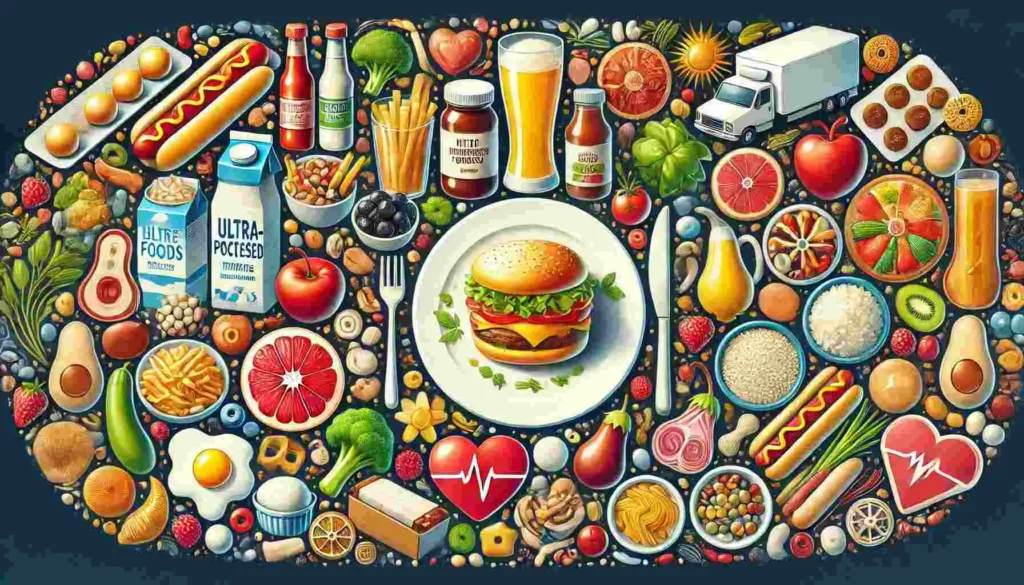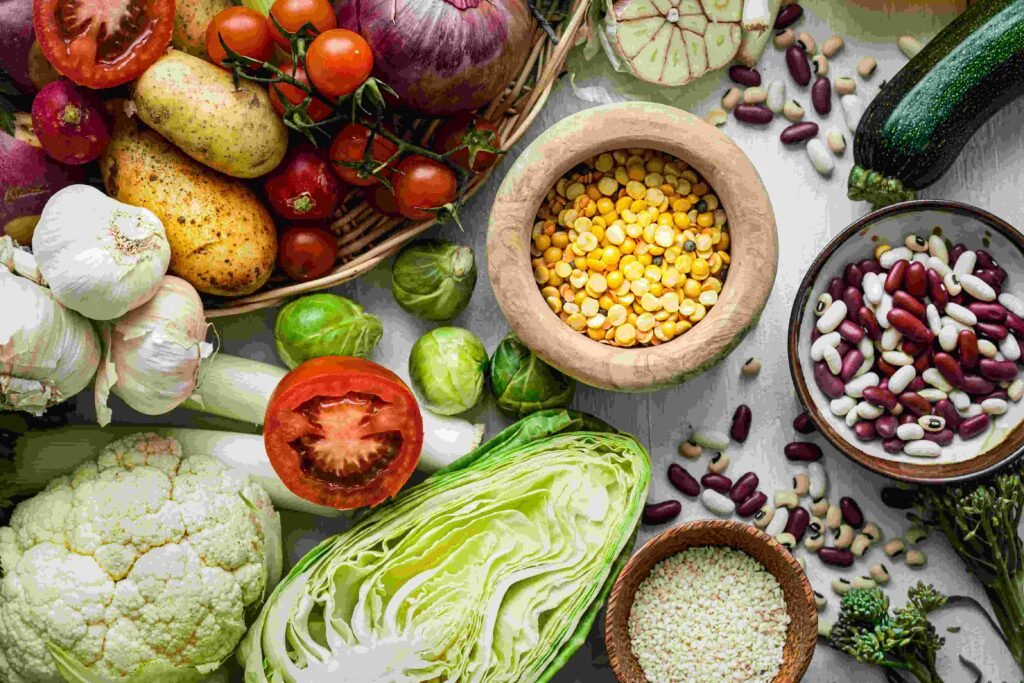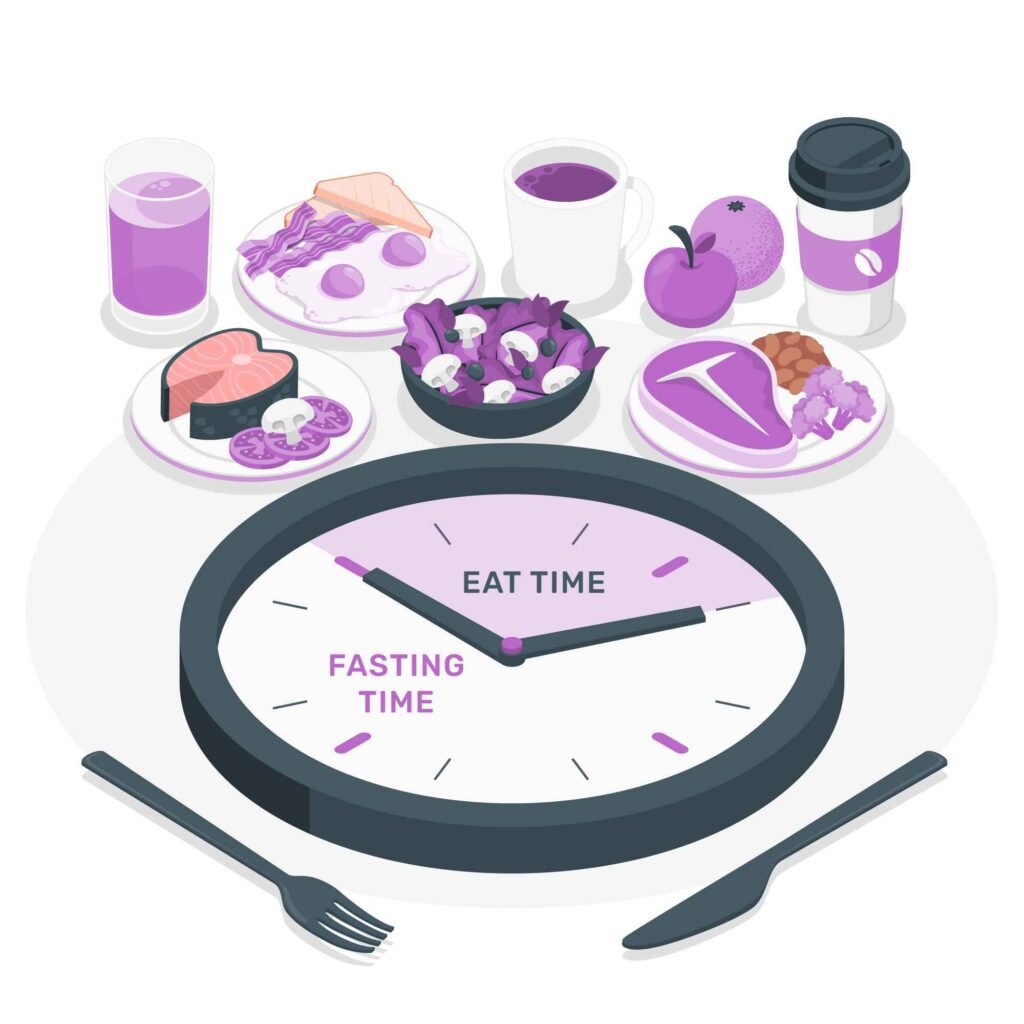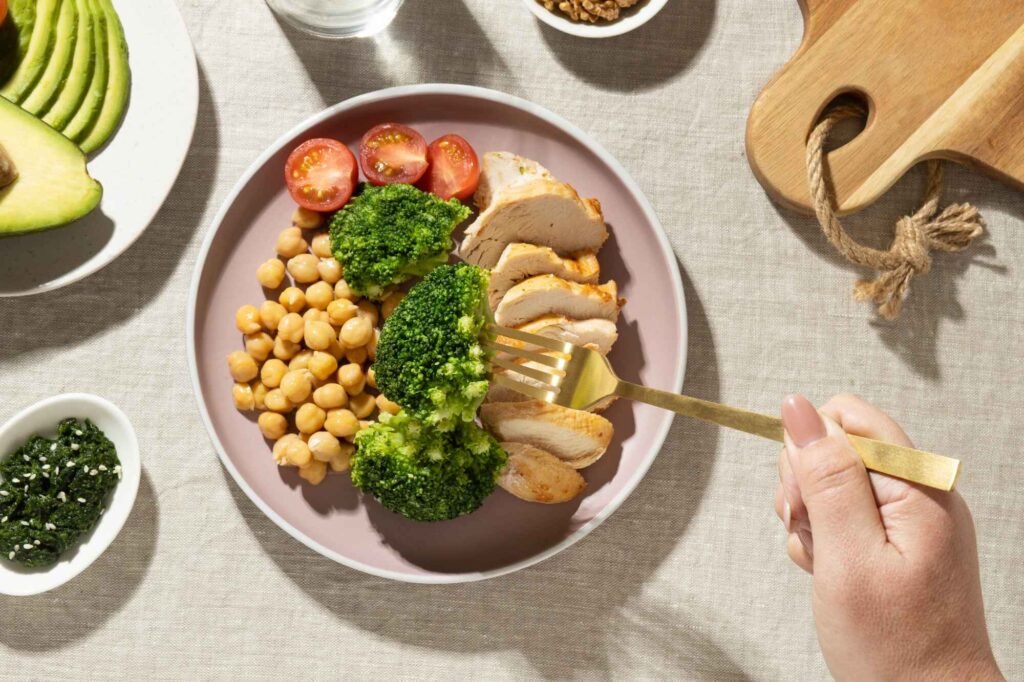
Understanding Ultra-Processed Foods: Health Implications and How to Avoid Them
In today’s fast-paced world, ultra-processed foods have become a dietary staple for many. But behind the convenience and appealing flavors lie health risks that are often overlooked. In this post, we’ll explore what ultra-processed foods are, their impact on health, and practical ways to cut them out of your diet.
What Are Ultra-Processed Foods?
Ultra-processed foods (UPFs) are industrial formulations created with multiple ingredients, often including additives like preservatives, emulsifiers, artificial sweeteners, and colorants. Unlike minimally processed foods like fresh fruits, vegetables, and whole grains, UPFs undergo extensive manufacturing processes that strip away nutrients and add artificial elements.
Common Examples of Ultra-Processed Foods
- Sugary drinks: Sodas, energy drinks, and sweetened teas.
- Packaged snacks: Chips, cookies, and candy bars.
- Frozen meals: Pre-made pizzas, ready-to-eat dinners, and microwaveable pasta.
- Fast food items: Burgers, fried chicken, and pizza from chain restaurants.
- Refined baked goods: White bread, pastries, and cakes.
How to Identify Ultra-Processed Foods
Reading labels is crucial. If you notice a long list of unfamiliar ingredients, including additives and preservatives, the product is likely ultra-processed. Terms like “hydrogenated oils,” “artificial flavorings,” or “high-fructose corn syrup” are red flags.
Health Implications of Ultra-Processed Foods
Consuming ultra-processed foods regularly can lead to serious health problems. While they offer convenience, the hidden costs to your well-being are significant.
1. Obesity and Weight Gain
Ultra-processed foods are typically high in added sugars, unhealthy fats, and calories but low in fiber and protein. This combination leads to overeating and rapid weight gain. A study published in the British Medical Journal found that higher consumption of UPFs is directly linked to an increased risk of obesity.
2. Increased Risk of Heart Disease
Trans fats and saturated fats found in many ultra-processed foods contribute to high cholesterol levels and arterial plaque buildup. This increases the risk of heart disease, stroke, and high blood pressure. Packaged snacks, fried foods, and processed meats are common culprits.
3. Type 2 Diabetes
UPFs often contain refined carbohydrates and added sugars, leading to rapid blood sugar spikes. Over time, this can lead to insulin resistance and increase the risk of developing Type 2 diabetes. Soft drinks, breakfast cereals, and sweetened yogurt are prime examples.
4. Digestive Issues
A lack of fiber in ultra-processed foods affects gut health. Fiber is essential for a healthy digestive system, and its absence can lead to constipation, bloating, and an imbalance in gut bacteria. This imbalance weakens the immune system and overall health.
5. Cancer Risk
Emerging research has found connections between UPF consumption and an increased risk of cancers. Additives, artificial preservatives, and low nutritional quality may contribute to cellular damage and higher rates of colorectal, breast, and other cancers.
6. Mental Health Concerns
Consuming ultra-processed foods can also impact mental health. Diets rich in processed foods are associated with a higher risk of anxiety, depression, and cognitive decline. The lack of essential nutrients and the presence of artificial additives can disrupt brain function and mood stability.
Why Are Ultra-Processed Foods So Addictive?
Ultra-processed foods are formulated to be highly palatable, combining sugar, fat, and salt in ways that trigger the brain’s reward system. This leads to cravings and compulsive eating patterns. These foods often bypass natural satiety cues, making it hard to feel full.
The Role of Food Industry Marketing
The food industry invests heavily in marketing ultra-processed foods, making them seem appealing, convenient, and essential. Bright packaging, slogans, and advertisements often target children and busy adults, perpetuating their consumption.
Simple Strategies to Avoid Ultra-Processed Foods
While avoiding ultra-processed foods entirely can be challenging, making gradual changes can significantly benefit your health. Here’s how you can minimize their impact on your diet.
1. Cook More Meals at Home
Home-cooked meals give you control over ingredients and cooking methods. Preparing fresh, whole foods helps you avoid hidden additives. Focus on simple recipes using whole grains, lean proteins, and fresh vegetables.
2. Prioritize Whole Foods
Base your diet on whole, unprocessed foods such as:
- Fresh fruits and vegetables
- Whole grains (brown rice, quinoa, oats)
- Legumes (beans, lentils, chickpeas)
- Nuts and seeds
- Lean meats, fish, and eggs
3. Read Labels Carefully
Pay attention to ingredient lists and nutrition labels. Avoid products with:
- Added sugars (e.g., sucrose, corn syrup)
- Artificial additives (e.g., colorings, flavorings)
- Hydrogenated or partially hydrogenated oils
The shorter the ingredient list, the better.
Practical Tips to Replace Ultra-Processed Foods in Your Diet
Transitioning away from ultra-processed foods doesn’t have to be overwhelming. By making simple swaps and focusing on nutrient-dense alternatives, you can improve your diet and overall health.
1. Swap Sugary Drinks for Healthier Options
Sugary beverages like sodas, energy drinks, and sweetened teas are among the worst offenders. They offer empty calories and lead to weight gain and metabolic issues.
Healthier Alternatives:
- Infused water: Add slices of lemon, lime, or berries for natural flavor.
- Herbal teas: Caffeine-free and naturally flavorful.
- Sparkling water: For a fizzy sensation without the sugar.
2. Choose Whole Grain Alternatives
Refined grains found in white bread, pasta, and pastries are stripped of their nutrients and fiber. Opt for whole grain versions to keep your diet fiber-rich and satisfying.
Healthier Alternatives:
- Whole wheat bread and pasta instead of white bread and pasta.
- Brown rice, quinoa, or barley instead of white rice.
- Oats or muesli instead of sugary breakfast cereals.
3. Snack Smart
Ultra-processed snacks like chips, candy bars, and packaged pastries are convenient but loaded with artificial ingredients, unhealthy fats, and sugars. Choosing whole-food snacks can keep your energy levels steady and support better health.
Healthier Alternatives:
- Nuts and seeds: Rich in healthy fats and protein.
- Fresh fruits: Apples, bananas, or berries for a natural sugar fix.
- Homemade trail mix: Combine dried fruit, nuts, and dark chocolate chunks.
- Vegetable sticks with hummus: Crunchy, satisfying, and nutrient-rich.
4. Cook in Bulk for Convenience
One reason people rely on ultra-processed foods is convenience. Cooking in bulk can help you have ready-made, healthy meals on hand throughout the week.
Meal Prep Tips:
- Batch-cook grains: Prepare large portions of quinoa, brown rice, or barley to use in different meals.
- Pre-chop vegetables: Store them in containers for easy access when cooking.
- Freeze meals: Make soups, stews, or casseroles and freeze portions for quick reheating.
Benefits of Cutting Out Ultra-Processed Foods
The rewards of reducing ultra-processed food intake are significant and can positively impact your physical and mental health. Here’s what you can expect:
1. Better Weight Management
When you replace ultra-processed foods with whole, nutrient-dense options, your body receives the fiber, protein, and healthy fats it needs. This leads to better satiety, reduced cravings, and healthier weight management.
2. Improved Heart Health
Cutting out trans fats, refined carbs, and excessive salt reduces your risk of heart disease. Whole foods like fruits, vegetables, and lean proteins support a healthy heart and help maintain optimal cholesterol and blood pressure levels.
3. Stable Blood Sugar Levels
Whole foods with fiber and natural sugars help regulate blood glucose levels. This reduces your risk of insulin resistance and Type 2 diabetes. Foods like whole grains, beans, and vegetables provide long-lasting energy without blood sugar spikes.
4. Enhanced Digestion
A diet rich in fiber promotes a healthy digestive system. Whole foods support gut health by feeding beneficial bacteria and improving regularity. Say goodbye to bloating, constipation, and digestive discomfort.
5. More Energy and Better Focus
Ultra-processed foods can leave you feeling sluggish and mentally foggy. Whole, nutrient-rich foods provide the vitamins, minerals, and energy your body needs to function at its best. Expect sharper focus and sustained energy throughout the day.
6. Improved Mental Health
What you eat influences your mood and cognitive function. A diet rich in whole foods can reduce symptoms of anxiety and depression, while ultra-processed foods can worsen them. Healthy fats, fiber, and nutrients play a critical role in brain health.
Myths About Ultra-Processed Foods
There are many misconceptions surrounding ultra-processed foods. Let’s debunk a few common myths to help you make informed choices.
Myth 1: Ultra-Processed Foods Are Affordable and Healthy
While ultra-processed foods might seem cheaper initially, their long-term health costs are significant. The expenses associated with treating obesity, diabetes, and heart disease outweigh the short-term savings.
Myth 2: All Processed Foods Are Bad
Not all processed foods are unhealthy. There’s a difference between minimally processed foods (like frozen vegetables and canned beans) and ultra-processed foods (like packaged snacks and sugary cereals). Minimally processed foods can still be nutritious and convenient.
Myth 3: You Need to Eliminate All Ultra-Processed Foods
It’s unrealistic to cut out ultra-processed foods entirely. The goal is to reduce your intake and focus on healthier alternatives. Small, consistent changes can lead to big health improvements.
Creating a Balanced and Sustainable Diet
Building a diet that minimizes ultra-processed foods doesn’t mean depriving yourself. Focus on balance, variety, and enjoyment.
1. Follow the 80/20 Rule
Aim to eat whole, nutrient-dense foods 80% of the time, and allow yourself occasional indulgences 20% of the time. This approach is sustainable and helps you stay on track without feeling restricted.
2. Plan Your Meals
Planning your meals for the week helps you avoid the temptation of ultra-processed convenience foods. Create a shopping list based on whole ingredients, and stick to it.
3. Listen to Your Body
Pay attention to how different foods make you feel. Ultra-processed foods may leave you feeling tired, bloated, or sluggish, while whole foods provide energy and satisfaction. Use this awareness to make healthier choices.
4. Make Healthy Eating Enjoyable
Experiment with new recipes, flavors, and cuisines. Eating healthily doesn’t have to be boring. Try out different herbs, spices, and cooking methods to keep your meals exciting.
How Ultra-Processed Foods Affect Children and Teenagers
Ultra-processed foods are especially harmful to growing children and teenagers. The long-term effects of poor dietary habits can extend into adulthood, impacting physical growth, cognitive development, and overall health.
1. Nutritional Deficiencies
Ultra-processed foods are often low in essential nutrients like vitamins, minerals, and healthy fats. Children who rely on these foods may not get the nutrients they need for proper growth, which can lead to deficiencies in:
- Calcium and Vitamin D: Essential for strong bones and teeth.
- Iron: Important for healthy red blood cells and preventing anemia.
- Omega-3 Fatty Acids: Crucial for brain development and focus.
2. Childhood Obesity
The high sugar, fat, and calorie content of ultra-processed foods significantly contributes to childhood obesity. Obesity in children can lead to early-onset diabetes, heart issues, and joint problems.
Common culprits include:
- Sugary cereals
- Packaged snacks
- Fast food meals
- Soft drinks
3. Impact on Brain Development and Learning
A diet high in ultra-processed foods has been linked to poor concentration, memory issues, and lower academic performance. Artificial additives, refined sugars, and lack of nutrients can hinder cognitive function.
Encouraging children to eat whole foods like fruits, vegetables, nuts, and whole grains supports better focus and learning outcomes.
4. Poor Eating Habits in Adulthood
Habits formed during childhood often continue into adulthood. A diet high in ultra-processed foods during early years can set the stage for a lifetime of unhealthy eating patterns, increasing the risk of chronic diseases.
Understanding Food Labels: Your Best Defense
Knowing how to read and interpret food labels is essential in avoiding ultra-processed foods. Here are key tips for identifying harmful ingredients and making healthier choices.
1. Check the Ingredients List
The ingredients are listed in order of quantity, from highest to lowest. If the first few ingredients are sugar, refined flour, or oils, it’s likely an ultra-processed product. Avoid items with:
- Artificial preservatives (e.g., sodium benzoate, potassium sorbate)
- Color additives (e.g., Red 40, Yellow 5)
- Sweeteners (e.g., aspartame, high-fructose corn syrup)
2. Look for Hidden Sugars
Sugar goes by many names. Look out for terms like:
- Sucrose
- Dextrose
- Glucose
- Agave nectar
- Honey
If several forms of sugar appear in the ingredients list, it’s a red flag.
3. Watch Out for Trans Fats
Even if the label says “0 grams of trans fat,” it can still contain small amounts. Look for terms like “partially hydrogenated oils” and avoid these products.
4. Understand Nutrition Labels
Focus on:
- Serving Size: Be aware of portion sizes to avoid overeating.
- Added Sugars: Aim for less than 25 grams per day for adults and less for children.
- Fiber Content: Higher fiber is better; aim for at least 3 grams per serving.
Healthy Meal Ideas to Replace Ultra-Processed Foods
Switching to a whole-food diet can be easier when you have a plan. Here are some simple, delicious meal ideas to help you avoid ultra-processed foods.
1. Breakfast Ideas
- Overnight Oats: Rolled oats, almond milk, chia seeds, and fresh berries.
- Greek Yogurt Parfait: Layer yogurt with nuts, seeds, and a drizzle of honey.
- Veggie Omelet: Eggs cooked with spinach, tomatoes, and onions.
2. Lunch Ideas
- Quinoa Salad Bowl: Quinoa, black beans, avocado, cherry tomatoes, and lime dressing.
- Whole Wheat Wrap: Grilled chicken, mixed greens, and hummus.
- Homemade Soup: Lentil or vegetable soup with whole-grain bread.
3. Dinner Ideas
- Grilled Salmon: Served with steamed broccoli and brown rice.
- Stir-Fried Vegetables: Mixed vegetables with tofu and soy sauce over quinoa.
- Turkey Meatballs: Made with whole-grain breadcrumbs and served with zucchini noodles.
4. Snack Ideas
- Fruit and Nut Mix: A blend of dried apricots, almonds, and dark chocolate chips.
- Apple Slices with Peanut Butter: A balanced mix of fiber and protein.
- Carrot and Celery Sticks: Served with homemade guacamole.
Mindful Eating: Building a Healthy Relationship with Food
Avoiding ultra-processed foods isn’t just about nutrition—it’s also about developing a healthy mindset toward food. Mindful eating helps you make conscious food choices and enjoy your meals fully.
1. Eat Slowly and Savor Your Food
Take the time to enjoy your meals. Eating slowly helps you recognize hunger and fullness cues, preventing overeating.
2. Avoid Distractions While Eating
Eating in front of the TV or computer often leads to mindless eating. Sit at a table and focus on your meal to make healthier choices.
3. Practice Portion Control
Even healthy foods can lead to weight gain if eaten in excess. Serve smaller portions and listen to your body’s signals.
4. Be Kind to Yourself
Healthy eating is a journey. If you indulge in ultra-processed foods occasionally, don’t feel guilty. Focus on making healthier choices in the long run.



